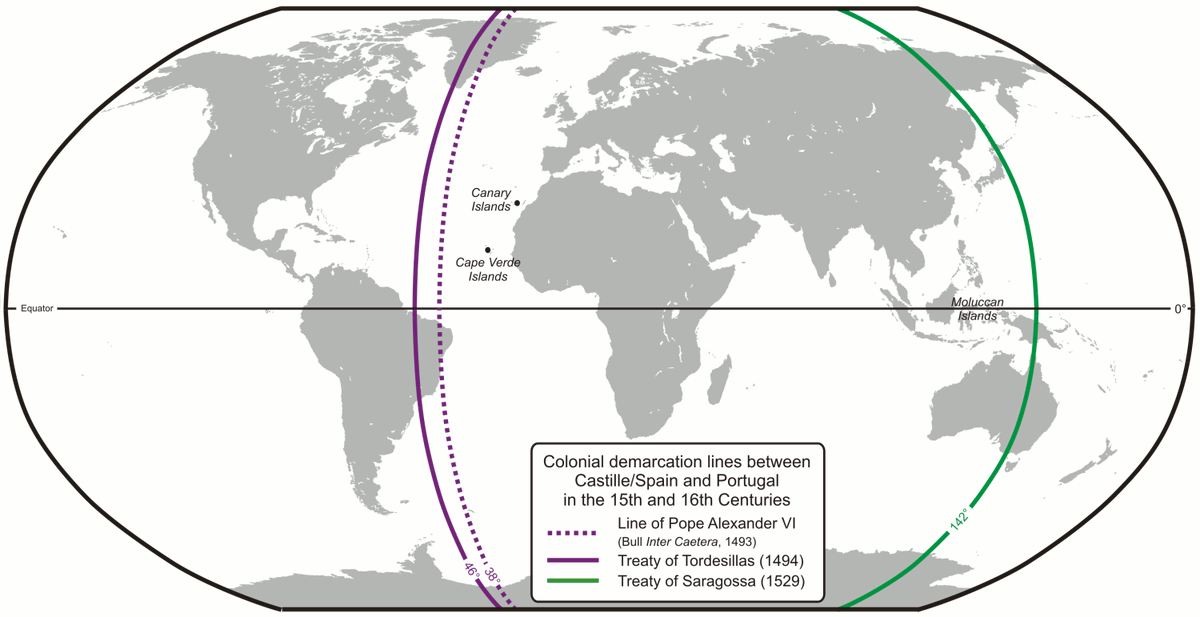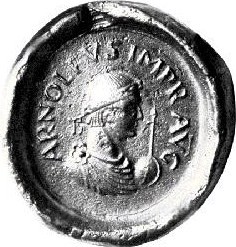
A treaty to divide the world.
A journey across four continents.
And the first step in an Empire, which will be born 3 centuries later.
Story in the evening ...
A journey across four continents.
And the first step in an Empire, which will be born 3 centuries later.
Story in the evening ...
https://twitter.com/Arby_K/status/1445207263279390728
Pedro Álvares Cabral was born around 1467 to Fernão Cabral and Isabel de Gouveia. Born in Belmonte, his family was among the Portuguese nobility connected with generations of service to the King. But unlike his predecessors', his was an age of exploration. 1/10 

The last decades of the 15th century saw a revival of Portuguese exploration, with the ascension of King João to the throne in 1481. The King had India in his sights and his ships set sail in search of the end of the African continent and a route to India beyond Africa. 2/10 

In 1484, an Italian explorer came up with a radical suggestion. But King João felt Africa gave him the best chance and in 1488, it finally came through when Bartolomeu Dias found the end of the continent. But India was still far away. 3/10 



The success of the Italian explorer on Castile funded voyage led to a diplomatic crisis. It was finally resolved by the Pope who divided non European Earth into Portuguese and Castilian divisions in 1494. With boundaries clearly laid out, more missions could now be send out. 4/10 

But King João died in 1495 and his cousin Manoel became the new King. It took till 1497 for the next expedition, led by Vasco da Gama, to depart. Though they reached India in 1498 and returned with saleable stock, it extracted a heavy cost in ship and men. 5/10 

With the target achieved, second expedition was send out with veterans of the seas, Bartolomeu Dias, his brother Diogo and Nicolau Coelho, who travelled with Gama. Running the show this time was Pedro Cabral, who led his fleet onto an "island", previously unknown to Europe. 6/10 

It is likely other explorers had reached the South American continent before Cabral, but in 1500 Cabral landed in what is now Brazil, spent two weeks exploring the continent & sent word for later Portuguese ships to take control of it, in line with the Treaty of Tordesillas. 7/10 

His fleet soon set off for India, which is when mother nature stuck. Some of the ships got lost and went missing, including the one led by Bartolomeu Dias, while his brother Diogo managed to hobble back to Portugal after losing touch of the remaining fleet. 8/10 

Cabral and his fleet was initially well received by the King of Kozhikode, but things soon turned sour and he would bombard the city later. He was more successful in the Kingdom of Kochi and would play one against the other in matters of trade. 9/10
historicalleys.blogspot.com/2008/07/cabral…
historicalleys.blogspot.com/2008/07/cabral…
Cabral and his fleet would reach Portugal back in 1501. Though he was slated to lead the fourth expedition to India, Gama would replace him. In 1503, Cabral would marry Isabel, niece of Afonso de Albuquerque, who would later lead many of the Portuguese conquests in Asia. 10/10 

• • •
Missing some Tweet in this thread? You can try to
force a refresh














